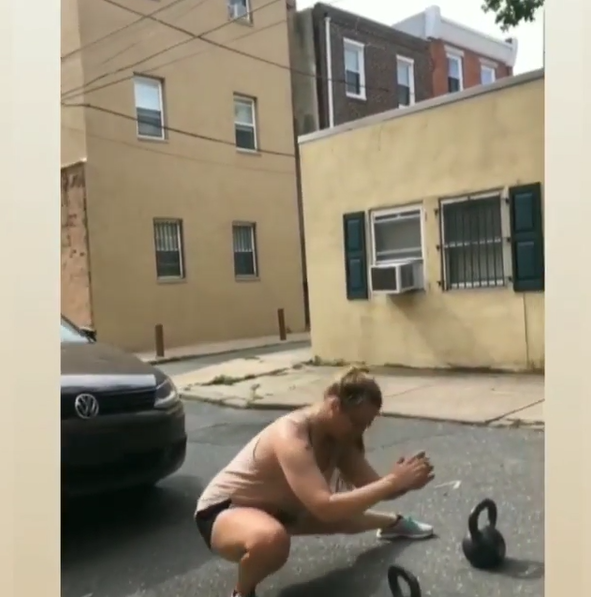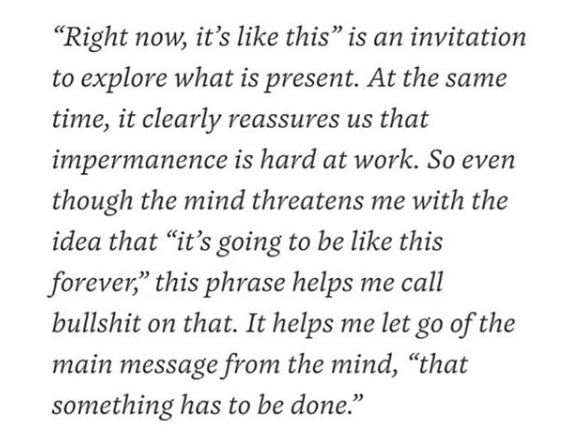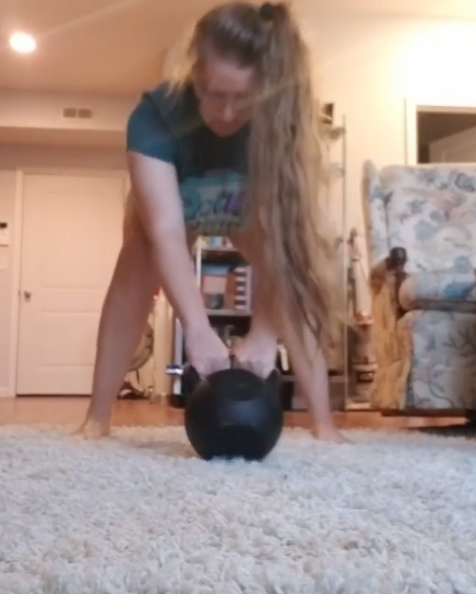Shaming Yourself for How You're Moving Is Probably the Last Thing You Need to Be Doing Right Now (Some Compassion ❤)
I'm not one to ignore big emotions.
Let me rephrase.
I love to avoid feeling big emotions, but, in general, I do not make it a practice to turn away from looking at and thinking about them.
In so doing, I've noticed, like you probably have as well, that the current world circumstances are chock full of emotions many of us not only wish we could avoid feeling, but which we have already spent a long time and a lot of effort avoiding.
Many of us are overloaded, for one reason or another (or several), whether you're still working (thank you, thank you, thank you) or are staying at home (thank you, as well). We're confronted with our feelings and the mechanisms we've been using to avoid them, with nowhere else to go.
This has some of us turning back to old, comforting habits we had previously chosen to let go. If you're there, and struggling ("Why can't I stop eating 'mindlessly'?" "Why can't I stick to the fitness routine I had before this? There isn't that much difference."), I'd like to offer you some compassion: it makes sense, in the face of an unprecedented event, that we'd turn to our oldest, most reliable ways to self-soothe (and, for most of us, food, cooking, reading, sleeping, lots of TV, games, phone scrolling, and all sorts of things we brand as, "lazy," (etc.) in our culture, are what we had access to in our earliest days, or have proven to be most reliable and easily-accessible in other turbulent times).
This has others of us stuck steadfastly to routines, gripping tightly to any sense of "normal" we can find. Our bodies might be clamoring for rest, for slowing down, for comfort, and routines can bring comfort. If you're there, I'd like to offer you compassion as well: it makes sense, in the face of an unprecedented event, that we'd turn to what helps things make sense, to what feels reliable, to our ability to count on ourselves to follow through with what we feel needs to be done.
In either circumstance, we are set on a relatively rigid pattern in hopes that we can reliably bring some sense of predictability in an unpredictable time (and also, in many cases, avoid feeling the very real feelings of fear, of sadness, of anger, of anything you're feeling that feels beyond your ability to cope, especially given then scope of things).
This is where I find movement that feels good more helpful than anything: movement can provide an opportunity to think about the way we're approaching (and have been approaching) challenges.
[note: this is not to say that there *must always be* a silver lining to something as huge as a global pandemic. That would be terribly disingenuous, at best, and bypassing lots of difficult circumstances and feelings in incredibly harmful fashion, more likely. I offer this more to say, in the face of crisis, one of the last things you need is to engage in one of our most culturally-prevalent routines: shaming yourself for the ways you are (or are not) moving or feeding your body.]
I started thinking about this a few weeks ago, when, for some reason, I found myself reading a conversation amongst trainers about open- and closed-chain exercises. In short, if you don't dabble in fitness jargon, an open-chain exercise is when the part of your body furthest away is free to move (e.g., a leg curl), as opposed to a closed-chain exercise, in which it is stationary (e.g., a squat). A useful (but perhaps boring) difference in classification, and also some definitions I don't tend to carry in the forefront of my mind, until I started thinking (overthinkers unite).
Closed-chain exercises, all else being equal, are safer for joints, which makes sense: keeping hands and feet firmly on the ground is generally less risky than the alternative. Often, though, we reach a point where, again, all things equal, we stop seeing gains the way we used to (true of all exercises, not just closed-chain ones, but stick with me). Eventually, 10 pushups don't challenge you the way they used to; you could do them in your sleep. So, what do you do (if continuing to challenge yourself and grow stronger is the goal, anyway)? Add weight (the obvious answer, but one likely not available at the moment).
And also, you could change the stimulus.
An open-chain exercise—say a chest press—will work different muscles involved in the movement pattern, will shift your perspective, will give a different understanding of your pecs + shoulders + the way you carry (parts of) your body through space, might be way more fun for you, and more. Who knows! All of which you never would have discovered if you had been committed to keeping the chain closed—to keeping both feet (hands) firmly on the ground.
The same is true, of course, with any pattern we repeat: opening up the path brings new insights, new possibilities.
Feeling the feelings—opening up the path—can feel terrifying, and if that doesn't feel accessible to you right now, that's okay. When you're ready to crack it open, bend a little, look around, and see what you find. It's all supplemental information about you, about the way you show up in the world, about the gifts you bring to our collective community (which are all so much more important than the vessel in which they arrive; you are so much more than your body).
I hope you're staying well and allowing yourself all the space you need to do what you have to in the ways and in the time you have to do it, where you are able.
xoxo,
Steph



